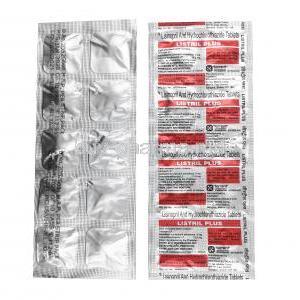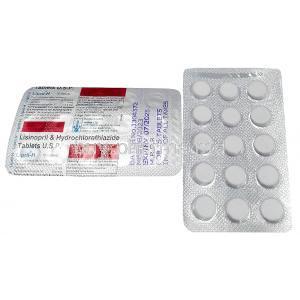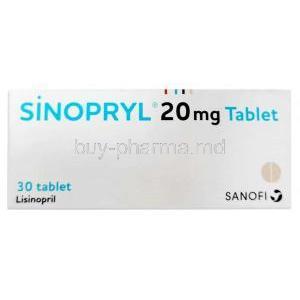Hydrochlorothiazide
- I. Introduction
- II. Composition of Hydrochlorothiazide
- III. How Hydrochlorothiazide Works
- IV. Uses of Hydrochlorothiazide
- V. Off-label Uses of Hydrochlorothiazide
- VI. Dosage and Administration of Hydrochlorothiazide
- VII. Special Administration Considerations
- VIII. Side Effects of Hydrochlorothiazide
- IX. Important Precautions When Using Hydrochlorothiazide
- X. Hydrochlorothiazide Interactions
- XI. Contraindications for Hydrochlorothiazide Use
- XII. Storage and Handling Precautions for Hydrochlorothiazide
- XIII. Conclusion
I. Introduction
A. Brief history of Hydrochlorothiazide
Hydrochlorothiazide often referred to as HCTZ has been a trusted medication for healthcare providers for more than 50 years. Developed in the late 1950s, this diuretic has consistently shown its effectiveness and dependability in treating various medical conditions. Belonging to the group of drugs called thiazide, Hydrochlorothiazide has earned the nickname "water pill" due to its powerful diuretic effects.
B. Importance in medical therapy
The introduction of Hydrochlorothiazide represented a significant breakthrough in the field of medical therapeutics. Its distinct diuretic properties have made it an essential tool for addressing various health conditions, such as hypertension, heart failure, and edema. Its usage has expanded to areas like diabetes insipidus and kidney stone prevention. Hydrochlorothiazide plays a crucial role in medical therapy and continues to impact treatment outcomes positively.
II. Composition of Hydrochlorothiazide
A. Chemical and physical properties
Hydrochlorothiazide is a white or practically white crystalline powder. With a molecular weight of 297.74 g/mol. It has slightly limited solubility in water. However, it is freely soluble in sodium hydroxide solution, n butylamine, and dimethylformamide. Methanol allows for only sparing solubility, while ether, chloroform, and dilute mineral acids render it insoluble. This compound is chemically known as six chloro 3,4 dihydro 2H 1,2,4 benzothiadiazine seven sulfonamide 1,1 dioxide, and its empirical formula is C7H8ClN3O4S2.
B. Pharmacological classification
Hydrochlorothiazide is classified as a thiazide diuretic in the field of pharmacology. Diuretics, in essence, are substances that help promote diuresis, which refers to increased urine production. Thiazide diuretics work by inhibiting sodium reabsorption at the distal convoluted tubule in the kidneys. This action leads to a higher elimination of water and electrolytes, such as sodium, potassium, and chloride. Consequently, thiazide diuretics are therapeutic for conditions like hypertension and edema.
III. How Hydrochlorothiazide Works
A. Mechanism of action
Hydrochlorothiazide functions by explicitly targeting the renal tubular mechanism responsible for electrolyte reabsorption. It accomplishes this by inhibiting the Na+/Cl- cotransporter system found in the distal convoluted tubule. Consequently, it leads to the increased excretion of sodium ions, chloride ions, and water from the body. This loss of sodium and water ultimately reduces fluid volume in blood vessels resulting in a subsequent decrease in blood pressure.
B. Pharmacokinetics and Pharmacodynamics
Hydrochlorothiazide is highly effective when taken orally as the body readily absorbs it. Its diuretic action begins within 2 hours of taking it and reaches its maximum effect within 4 hours. The drug's elimination half-life can range from 5.6 to 14.8 hours. It allows for once daily or twice daily dosing. Pharmacodynamically, Hydrochlorothiazide has a multifaceted impact on the body in addition to its strong diuretic effect. It also affects blood glucose levels and lipid profiles. Therefore, careful judgment and regular monitoring are necessary to optimize this medication's benefits while minimizing potential adverse effects.
IV. Uses of Hydrochlorothiazide
A. FDA approved indications
Hydrochlorothiazide is primarily known for its significant impact on controlling hypertension. A recognition bestowed by the U.S. Food and Drug Administration (FDA). Furthermore, it has garnered approval for addressing edema linked to congestive heart failure, hepatic cirrhosis, corticosteroid therapies, and nephrotic syndrome. Moreover, it is considered as an additional treatment option for acute pulmonary edema.
Here are some references for you:
1. PubMed
2. Mayo Clinic
3. NHS
B. Management of hypertension
Hydrochlorothiazide alleviates fluid overload in individuals with hypertension, decreasing the overall volume within the vascular system. This reduction in blood volume ultimately leads to a decrease in blood pressure. It is commonly utilized as a standalone treatment or in combination with other antihypertensive medications to control the condition effectively.
References:
2. Hydrochlorothiazide - StatPearls - NCBI Bookshelf
3. Thiazide diuretics for the treatment of high blood pressure - Cochrane
C. Heart failure treatment
Hydrochlorothiazide is an effective solution for the complications caused by heart failure. This condition often leads to excessive fluid retention, which can be harmful. However, Hydrochlorothiazide has been proven to promote diuresis, which helps remove excess fluid and reduces the strain on the heart. As a result, it dramatically improves symptoms related to heart failure, such as shortness of breath, swollen ankles or legs, and fatigue.
References:
1. Hydrochlorothiazide for heart failure.
3. Thiazide Use and Decreased Risk of Heart Failure in Nondiabetic Adults.
D. Edema relief
Hydrochlorothiazide skillfully addresses edema, a medical condition marked by abundant fluid accumulation in body tissues. The remarkable diuretic effects of this medication facilitate the removal of such excess fluids providing substantial relief to individuals impacted by this condition.
References:
- Hydrochlorothiazide
- Hydrochlorothiazide: MedlinePlus Drug Information
- Hydrochlorothiazide - StatPearls - NCBI Bookshelf
E. Diabetes Insipidus management
Hydrochlorothiazide effectively manages Diabetes Insipidus, a condition marked by excessive thirst and the excretion of substantial amounts of urine. This medication aids in decreasing urine volume while increasing its concentration in individuals, offering them the much-needed relief they seek.
References:
- PubMed: Antidiuretic effect of hydrochlorothiazide in lithium-induced nephrogenic diabetes insipidus is associated with upregulation of aquaporin-2, Na-Cl co-transporter, and epithelial sodium channel
- Medscape Reference: Diabetes Insipidus Medication
- NHS: Diabetes insipidus - Treatment
V. Off-label Uses of Hydrochlorothiazide
A. Osteoporosis prevention
Hydrochlorothiazide is sometimes used off-label to prevent osteoporosis. By reducing urinary calcium excretion, it has the potential to increase bone density
References:
B. Nephrolithiasis treatment
Kidney stones, known as nephrolithiasis, can be effectively managed using Hydrochlorothiazide. This medication helps prevent the formation of kidney stones by reducing the amount of calcium excreted from the body.
References:
- Thiazide and thiazide-like diuretic agents to prevent recurrent nephrolithiasis:
- Hydrochlorothiazide and Prevention of Kidney-Stone Recurrence
- Hydrochlorothiazide: Diuretic Uses, Side Effects, Warnings
C. Off-label use in diabetes mellitus
In select scenarios, Hydrochlorothiazide can paradoxically serve as a suitable therapy for patients suffering from diabetes mellitus despite its potential ability to elevate glucose levels. This strategic decision addresses comorbidities like hypertension or edema that could worsen a diabetic individual's prognosis.
References:
- Type 2 Diabetes and Thiazide Diuretics
- The metabolic cost of lowering blood pressure with hydrochlorothiazide
- Problems of using Hydrochlorothiazide Diuretic in Adult
VI. Dosage and Administration of Hydrochlorothiazide
A. General guidelines
Hydrochlorothiazide is typically administered orally. Either in a single dose or divided into two doses for better absorption rates. Ensuring effective intake requires swallowing the tablet whole with adequate liquid. It's important to mention that dosages are tailored to each patient's specific therapeutic response and capacity to handle the medication.
B. Dosage variations based on condition
The recommended starting dose for hypertension is typically 12.5 to 25 mg daily. Although in some instances, a lower dose may be used. If necessary, the dosage can be gradually increased to a maximum of 50 mg per day. In the treatment of edema adults usually start with a daily dose of 25 to 100 mg, or they may take it on alternate days depending on the severity of their condition. The dosage for heart failure typically ranges from 25 to 100 mg daily. For diabetes insipidus. The dosage can vary from 25 to 100 mg daily. And adjustments may be made based on how the patient responds to therapy.
C. Guidelines for missed and extra doses
Patients who miss a scheduled dosage are encouraged to take it as soon as they recall unless it's close to their next planned dosage time. Under those circumstances, skipping the overlooked dosage and resuming their regular dosing schedule would be appropriate. An additional dosage to compensate for the previously skipped one should never be done. Immediate medical attention must be sought if overdosing takes place.
VII. Special Administration Considerations
A. Administration to elderly patients
It is important to note that elderly patients might experience a more pronounced response when administered the standard dose of Hydrochlorothiazide. Consequently, it is recommended to initiate treatment with a lower starting dose followed by accurate dosage adjustment and diligent monitoring of renal function.
B. Administration to pregnant women and nursing mothers
Hydrochlorothiazide should only be used during pregnancy if the potential benefit outweighs the possible risk to the fetus. Considering that the drug is eliminated through breast milk, it is essential to exercise caution when prescribing Hydrochlorothiazide to nursing women.
C. Administration to children
In pediatric patients, it is common, to begin with a diuretic dose of Hydrochlorothiazide ranging from 1 to 2 mg/kg per day. Should the desired therapeutic effect not be attained, the dosage can be gradually increased every 5 to 7 days. However, it is essential to note that the maximum daily dose should not exceed 3 mg/kg.
D. Considerations for patients with kidney or liver disease
Patients with impaired renal or hepatic function require careful consideration due to potential limitations in drug elimination. It would be prudent for healthcare providers to initiate treatment with lower doses for these individuals and adjust the dosage gradually while diligently monitoring their fluid and electrolyte balance.
VIII. Side Effects of Hydrochlorothiazide

A. Overview of common side effects
Hydrochlorothiazide may sometimes lead to specific side effects, including dizziness, lightheadedness, headache, blurred vision, loss of appetite, abdominal/stomach pain, and sensitivity to sunlight. It is important to note that these side effects are generally moderate and temporary. They can be alleviated through ongoing treatment or by discontinuing the medication altogether.
B. Discussion on rare but severe side effects
Rare but severe side effects may include hypokalemia (low potassium levels), hyponatremia (low sodium levels), hypomagnesemia (low magnesium levels), hypercalcemia (high calcium levels), and hyperglycemia (high blood sugar). Severe allergic reactions are extremely rare but necessitate immediate medical attention.
C. Symptoms and treatment of over dosage
An excessive amount of Hydrochlorothiazide can upset the equilibrium of electrolytes within the body and result in troubling indicators like nausea, weakness, dizziness, and dry mouth. Timely medical intervention plays a pivotal role in skillfully managing this scenario. The main course of treatment aims at extending support and mitigating the specific experienced symptoms. In cases that demand it, vomiting induction, giving gastric lavage, or administering activated charcoal may be requisite for management. This article introduces appropriate information regarding the seriousness of Hydrochlorothiazide overdose and suggests approaches for its effective handling.
IX. Important Precautions When Using Hydrochlorothiazide
A. Potential allergies
Before starting Hydrochlorothiazide treatment, patients should inform their healthcare provider of any previous allergic reactions to thiazide diuretics or sulfonamides. If an allergic reaction occurs, such as a rash, itching, or swelling (particularly in the face, tongue, or throat), severe dizziness, or breathing difficulties, it is crucial to seek immediate medical help.
B. Warnings for people with specific health conditions
It is advisable to exercise caution when considering using Hydrochlorothiazide in individuals with pre-existing medical conditions such as liver disease, kidney disease, lupus, gout, or diabetes. Diuretic use can lead to fluid and electrolyte imbalances, worsening these conditions.
C. Lifestyle considerations (alcohol, diet, exercise)
Patients should restrict their alcohol intake. Doing so can worsen the side effects associated with using Hydrochlorothiazide. Moreover. Due to the potential risk of hypokalemia. Patients are often recommended to follow a diet that includes potassium-rich foods. Engaging in regular physical activity is also encouraged. Nonetheless, patients must be cautious and ensure they do not become overheated or dehydrated while exercising or in hot weather. Finally, individuals should seek guidance from a healthcare professional to receive personalized advice catered to their specific needs and circumstances.
X. Hydrochlorothiazide Interactions
A. Potential drug-drug interactions
Patients need to inform their healthcare professionals about all the medications they are currently taking, including over-the-counter drugs and supplements. Hydrochlorothiazide has the potential to interact with several other medications, such as digoxin, lithium, antidiabetic drugs, and nonsteroidal anti-inflammatory drugs. Therefore disclosing a comprehensive list of current medications is necessary to avoid any potential interactions.
B. Drug-food interactions
Hydrochlorothiazide has the potential to interact with specific foods. Excessive consumption of salt. For example. This can reduce the effectiveness of this medication in treating high blood pressure. Thus. It is paramount to uphold a well-rounded diet while using this medicine.
C. Interactions with laboratory tests
Hydrochlorothiazide may affect specific laboratory tests, such as parathyroid function tests leading to inaccurate outcomes. Therefore. It is advisable for patients to notify laboratory personnel about their current medication intake duly.
XI. Contraindications for Hydrochlorothiazide Use
A. Absolute contraindications
Hydrochlorothiazide should not be used in patients with anuria (non-passage of urine) or hypersensitive to Hydrochlorothiazide or other sulfonamide-derived drugs. This is because there is a risk of cross-sensitivity in these individuals.
B. Relative contraindications
Although not always definitive. It is recommended that Hydrochlorothiazide be used with caution in individuals experiencing severe renal impairment and hepatic disease or pre-existing electrolyte imbalances. Furthermore, patients with a history of gout or lupus should exercise caution when considering this medication.
XII. Storage and Handling Precautions for Hydrochlorothiazide
A. Recommended storage conditions
Please ensure that Hydrochlorothiazide is stored at room temperature between 20 to 25 degrees Celsius (68 to 77 degrees Fahrenheit). It is essential to keep this medication in a dry place and away from any exposure to light. To prevent unintended ingestion. It is crucial to store it out of the reach of children and pets.
B. Precautions for dispensing and disposal
Healthcare professionals should ensure the prescription's accuracy and verify the patient's identity before dispensing Hydrochlorothiazide. They must provide counseling on dosage, administration, and potential side effects. Patients must be informed that they should not share their medication with others as it has been prescribed explicitly for their medical condition. Additionally, it is essential that unused or expired medication is not thrown away in household trash, flushed down the toilet, or poured into drains. Instead, patients should return these medications to a pharmacy or local waste disposal company for safe disposal.
XIII. Conclusion
A. Summary of key points on Hydrochlorothiazide
Hydrochlorothiazide is a commonly prescribed thiazide diuretic for treating hypertension, heart failure, edema, and diabetes insipidus. It inhibits sodium reabsorption in the kidneys leading to increased diuresis or urination. To ensure optimum therapeutic outcomes and minimize adverse effects, it is essential to take this medication as directed and be aware of potential side effects, interactions, and precautions. Additionally, regular monitoring and follow-up are essential components of treatment.
B. Current and future research directions
Hydrochlorothiazide undoubtedly occupies a prominent role in therapeutic regimens; nonetheless, continued exploration is underway to unlock its utmost capabilities. Researchers are conducting studies to ascertain its efficacy within alternative clinical contexts and develop advanced delivery methods targeting enhanced patient compliance and minimized side effects. As further insights emerge from ongoing investigations, healthcare providers will be empowered with optimal strategies for utilizing Hydrochlorothiazide across various patient profiles.






























